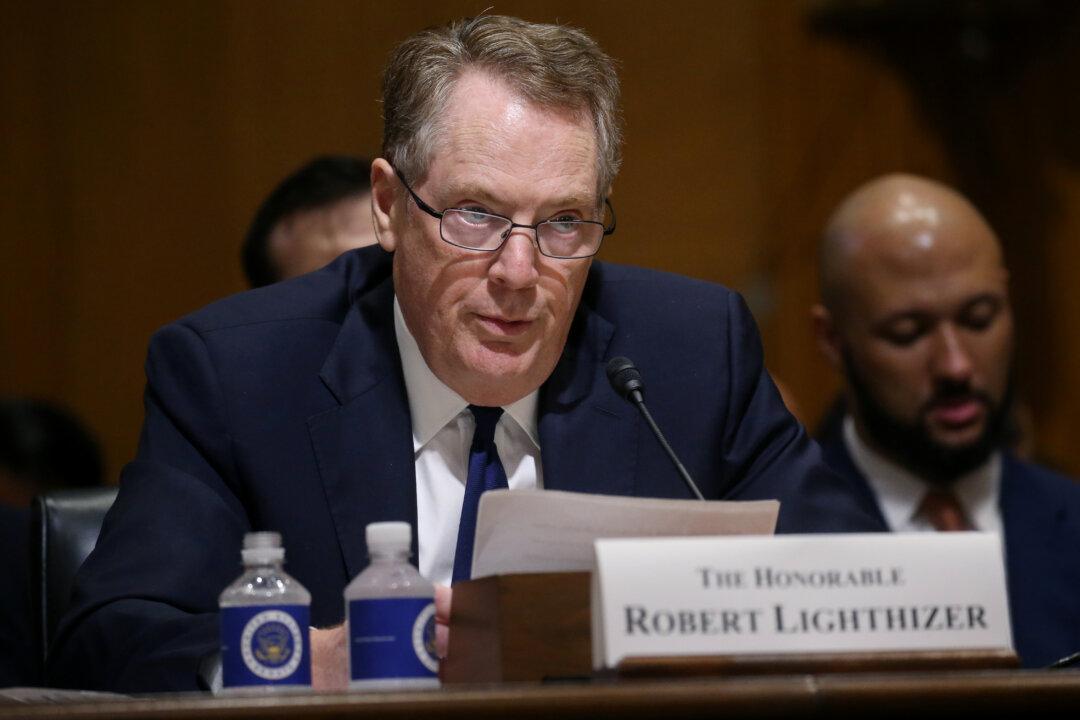The top U.S. trade negotiator said on June 19 that it is in the interests of China and the United States to have a successful trade pact, and he expects to meet with a senior Chinese official ahead of next week’s G20 summit in Japan where President Donald Trump and Chinese leader Xi Jinping are scheduled to meet.
U.S. Trade Representative Robert Lighthizer, testifying at a congressional hearing of the House of Representatives Ways and Means Committee, said he and U.S. Treasury Secretary Steven Mnuchin will meet with Liu He, China’s vice premier and chief negotiator in the trade talks, ahead of the G20 summit in Japan.





